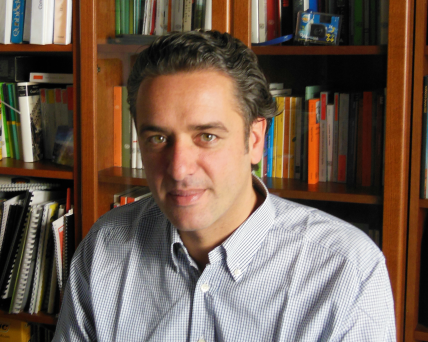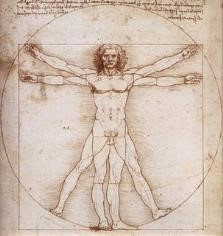Back to PWI Magazine- Q4 edition
Equal Opportunities: a man’s perspective
By Luca De Gaudenzi
I’m not sure whether the short story I’m going to tell is a consequence of the economic crisis of the last years or of the gender equal opportunities domain, it probably can be considered part of both.
|

|
|
Luca De Gaudenzi
Business-Executive Coach and Counselor
|
I was born and grew up in a traditional Latin family, where males were invited to keep their distance from the kitchen during cooking times. 2007 was (age 37), the first time I entered the kitchen because I was hungry and I saw that there wasn’t any food waiting for me - I realized that it was the beginning of a new life.
Free-lance since 2004, and separated father of a five-years-old boy, in 2007 after years of marriage and traditional work in Andersen Consulting / Accenture I started to become aware of those issues that traditionally affect working mothers (e.g. cooking, housekeeping, school timetable, child care…).
As a one-man firm I have to manage my time to balance different roles and activities which are required to run the business, whilst managing my role as “part-time father” (i.e. joint custody, part time presence).
In my experience full-time workers have more career and working opportunities, therefore the “hot” question I had to quickly answer was “How can I be a father and, at the same time, be successful in my profession, if I cannot fully dedicate myself to work?”
So I focused on finding a solution for enhancing my professional career, and balancing it with responsibilities as a single father. After a period of research and reflection, I realized that getting training in Coaching could be the answer to my needs. I thought that working as an independent professional able to plan his own agenda and to deliver 1 to1 services, both with face to face and virtual meetings, was the solution.
I decided to attend the “Master in business and executive coaching” (SCOA Milan) and the “Chartered business coach programme” (Professional Development Foundation - Middlesex University London) where I grew up and I was accredited (1) at Masters-level in three areas of competence:
- Self-Management–Knowing Oneself and Self-Mastery
- Core Coaching Skill-base
- Business and Leadership Coaching Capabilities
Each area includes a listing of competencies (2). Each competency is illustrated by examples of the behavior expected of a proficient master coach.
Going deeper and further in the coaching domain and personal journey through studies, practice and reflections made me aware that from a personal/professional perspective “I was born and I grew up to be a Coach”: in the past as a manager I was often assigned difficult and/or high potential personnel as a teacher/coach with groups I used maieutic (i.e. a pedagogical method based on inquiries, relying on the idea that the real growth must come from within the other) as the main technique in order to give value to the expertise and knowledge of coachees’ and to develop their awareness, expanding their communication effectiveness and developing cognitive agility and emotional capacity.
I’ve also joined the Worldwide Association of Business Coaches (3) and the Business Success Coach Network (BSCN).
 Now the roles I have to play are:
Now the roles I have to play are:
Father - educate and raise my son
Entrepreneur
Sole director - run the company according to legal requirements
Businessman - market and develop business through commercial activity
Coach - manage and execute coaching programs and sessions
Playing all these roles is very stimulating and means a rigorous application of time management and delegation principles. I have also to schedule time in my agenda for sport, friends, family and private life. Virtual working with the help of technology, combined with working from home-office, has proved to be an effective solution. I experienced that separated/divorced fathers with joint custody, find it more difficult to adapt to their new situation. This is also due to the traditional roles given to the man and woman in raising children. My impression is that companies/organizations are not yet aligned to this evolving cultural/societal shift.
At the end of 2014, after eight years of solo coaching practice, and proud of the relationship I’ve built with my son (based on open dialogue and a highly intelligent emotional rapport), I felt the need to develop the business side of my activity. From a professional point of view I felt the need of going beyond the impression that “the market” is still resistant to the Business-Executive Coaching emerging profession.
Why is the labour market resistant? I have no answers, only questions; for example: “Are HR services buyers resistant to new and independent coaches? Has economic crisis specifically impacted the coaching industry? Are clients fully aware of the potential business impact of a coaching journey?”
Reflecting on my personal developmental journey I can say that the feelings, emotions, responsibilities and work-life balance concerns of my clients, are very similar the ones I’m living through (personal and professional) and this is of extreme help, both in coaching executives and entrepreneurs, and when I supervise other coaches.
Experience in living and facing uncertainty and continuous change is a big part of the lives of all entrepreneurs and managers and I think it is an essential skill for interacting in executive-level coaching sessions. Often in my work I have to make clients aware that the attempt to control everything causes them extra stress and that living in harmony with change and uncertainty will help them to grow and develop.
Even though sixteen theoretical coaching approaches have been identified in “The Coaching Handbook” (Cox, Bachkirova, and Clutterbuck, 2010), I think that in the coaching domain there is no single valid theory, but good practices and bad practices and it is the competency level of the coach which makes the difference. Therefore, I developed my own model of practice accredited at academic level by Middlesex University and the Worldwide Association of Business Coaches (WABC).
Model of practice
My “Model of practice” is in line with:
- Harvard Business Coaching model: “Coaching borrows both from consulting and therapy” (Coutu and Kaufmann 2009)
- Middlesex University and Professional Development Foundation model “Building your own coaching framework for complex times” (Lane and Cavanagh 2011)
- INSEAD Leadership Coaching Model “To direct a person or a group of people toward a specific mutually determined goal” (Kets de Vries 2008).
Now the challenge is to maintain the work-life balance I’ve built in the last years, and to succeed as a Business – Executive Coach and Counselor, using virtual collaboration, in a profession where there is growing competition.
In conclusion, like Kets De Vries, I can say that in my practice I’m struggling to close the gap between various disciplines (e.g. coaching, consulting and therapy), “walking the talk” of work-life balance, and therefore I see myself as a bridge-builder. I’ve learnt to fine-tune action, reflection and learning according to my needs. Now like Freud and De Vries say, using myself as a tool, I do what works for clients, whilst respecting ethical principles, and maintaining “commitment to enhancing personal learning and self-knowledge” (Lane and Corrie 2012) but never forgetting the business focus!
REFERENCES
|
Luca De Gaudenzi Graduated in Economics, after completing his military service as an officer, he started his career in Andersen Consulting – Accenture where he worked in the Change Management Professional Area. At Andersen he played the roles of trainer, Project Leader and Project Manager on the Human Impact of Innovation and Process & Technology Transformation.
Then he spent seven years as an independent contractor both as Change Management Advisor-Coach and as a Teacher-Coach of Organization and Management Behaviors (mainly in the Banking and Insurances domains).
At present Luca (Chartered Business Coach certified by the Worldwide Association of Business Coaches-Middlesex University) is working as an independent Business-Executive Coach and Counselor. His mission as a Coach is to promote and increase individual and collective well-being for both businesses and people, and in doing this he works to improve Coachees’ competences and behaviours toward desired goals-results.
Luca loves and practices field hockey, skiing, snowboard, windsurfing, diving, tennis and moto-biking.
|
|
Contacts Details
Luca De Gaudenzi DeGa Coaching & Counseling
C.so Principe Eugenio 1/e
10122 – Turin - Italy
Mobile: +39.349.3153533
Email: degaudenzi@alice.it
Web: www.degacoaching.vpsite.it/
|
Back to PWI Magazine - Q4 edition
Disclaimer - Any views and opinions presented in this article are solely those of the author and do not necessarily reflect those of WABC, nor do they constitute a legally binding agreement.
.png)
.png)